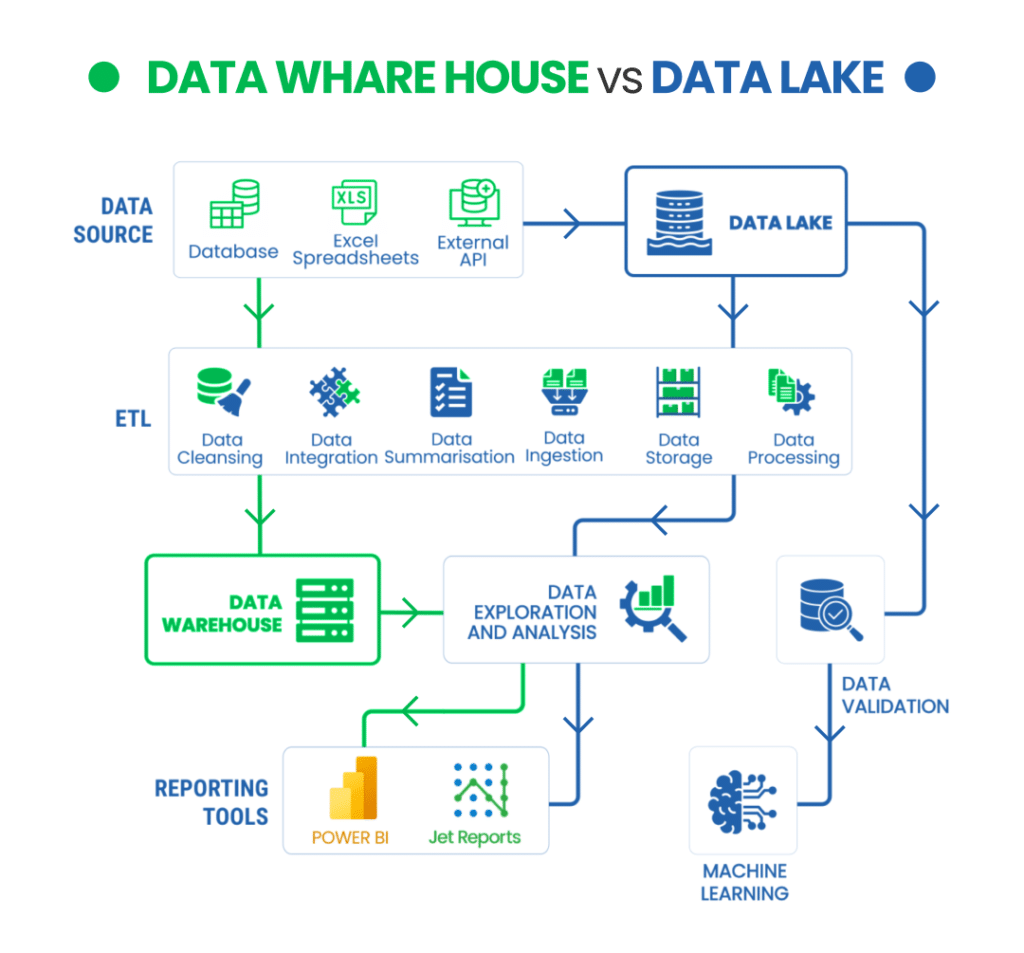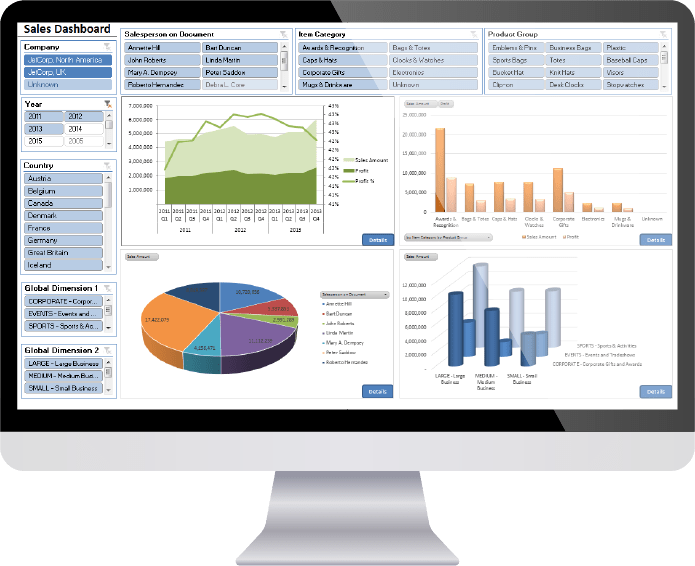With the rise of big data and the explosion of new data sources, traditional data warehousing approaches may not be sufficient to meet the needs of modern data management and analytics, creating confusions between Data lake and Data warehouse. This has led to the development of new approaches, including Data Lake and Data Warehouse. Each approach offers unique benefits and drawbacks, and understanding the differences between them is critical to making informed decisions about data management and analytics.

Data Lake
A Data Lake is a centralized repository that allows businesses to store vast amounts of raw, unstructured, or structured data at scale. It provides a flexible storage environment, enabling organizations to ingest diverse data types without the need for upfront structuring. This unrefined data can then be processed and analyzed for valuable insights, making Data Lakes ideal for handling large volumes of real-time and varied data.
Benefits and Use Cases of Data Lake
Data lakes provide scalable and cost-effective storage, accommodating diverse data types such as raw and unstructured data for flexible analysis. With a focus on real-time analytics and advanced capabilities like machine learning, they support innovation in algorithm development. Cost-efficient storage solutions, often leveraging scalable cloud storage, make data lakes economical for managing large datasets.
Use cases range from big data analytics, IoT data management, and ad hoc analysis to long-term data archiving and achieving a 360-degree customer view. In essence, data lakes offer dynamic repositories that empower organizations with flexibility, real-time insights, and comprehensive data management solutions.
Data Warehouse
On the other hand, a Data Warehouse is a structured, organized database optimized for analysis and reporting. It is designed to store structured data from various sources in a format that is easily queryable and supports business intelligence reporting. Data Warehouses are characterized by their schema-on-write approach, requiring data to be structured before entering the system, ensuring a high level of consistency for analytical purposes.
Benefits and Use Cases of Data Warehouse
Data warehouses offer a multitude of benefits, including optimized structured data analysis for improved query performance and efficient reporting. They preserve historical data for time-series analysis and audit trails, enhance business intelligence through data consolidation and dashboard creation, ensure data quality and consistency through cleansing processes, and provide scalability to handle growing data volumes.
Common use cases encompass business performance analysis, customer relationship management, supply chain optimization, financial reporting and compliance, and human resources analytics.
Data Management and Analytics
Data Storage:
Data Lakes excel in accommodating massive volumes of raw and unstructured data, offering a scalable and cost-effective solution. This flexibility enables businesses to store data without the need for immediate structuring, allowing for quick and agile data ingestion. On the other hand, Data Warehouses focus on structured data storage, emphasizing a predefined schema for efficient querying and analysis. The structured approach in Data Warehouses ensures data consistency, making it suitable for organized storage and retrieval in analytical scenarios.
Data Management:
Efficient data management is a common thread in both Data Lakes and Data Warehouses, with different approaches. Data Lakes provide an easier environment, allowing businesses to ingest diverse data types without upfront structuring. This flexibility is ideal for exploratory analysis and discovering hidden patterns in raw data. And, Data Warehouses prioritize structured data management, adhering to a predefined schema. This structured approach simplifies data governance, ensuring consistency and reliability for strategic decision-making and business intelligence reporting.
Big Data:
Data Lakes shine when dealing with the volume, variety, and velocity of big data, offering a scalable repository for diverse and large datasets. Their ability to store raw and unstructured data positions them as a valuable solution for businesses dealing with the complexities of big data. Data Warehouses, while excelling in structured data analysis, may face challenges with the sheer volume and variety of big data. However, the two can complement each other in a hybrid approach, providing a comprehensive solution for businesses dealing with the challenges posed by big data.

Want to try Jet Analytics?
Get Free License
for 30 Days

Finding the Right Fit: data lake vs data warehouse
Is there room for both Data Lake and Data Warehouse in your data strategy? Explore the benefits of adopting a hybrid approach, seamlessly integrating the strengths of both solutions for comprehensive data management. Discover the factors to consider when choosing between Data Lake and Data Warehouse solutions. From cost considerations to scalability needs and varying data types and formats, find the perfect fit with Global Data 365 for your business’s unique requirements by contacting us now.




